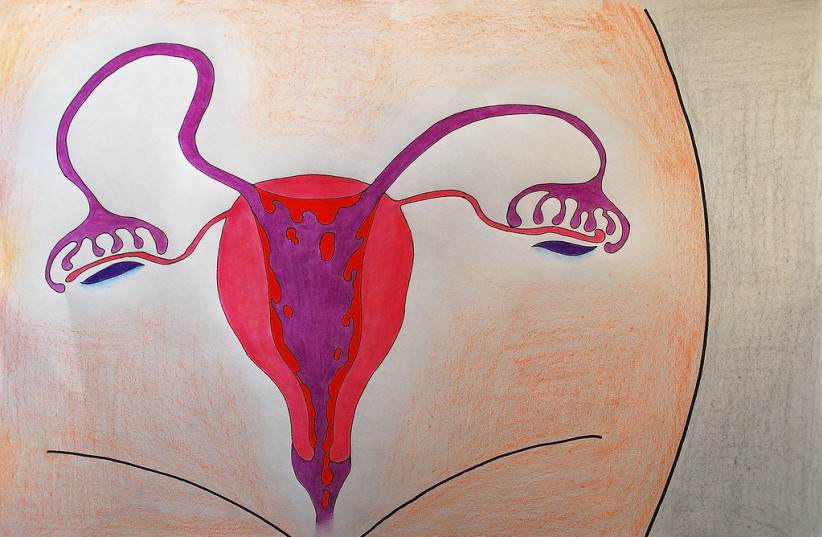For many years, menopause was something women endured in silence. It was embarrassing to speak about and women were expected to suffer through symptoms and not talk about them.
Within the last 20 years, however, more and more women have been speaking up about the problems they deal with during menopause, along with a few benefits. Doctors have also changed their attitude of dismissal and now offer new and innovative solutions for this challenging period.
Dr. Fani Bar Levy, an experienced gynecologist, says that menopause is now seen as the end to the first stage of a woman's life. Women can now decide how to improve their lives and talk openly about the struggles and consequences of aging.
At the beginning of the 20th century, the average life expectancy of a woman was 45 years; today, it's 85. Since women live such long lives, they want to improve their quality of life.
What to expect after age 50

Menopause manifests itself differently from one woman to another and can be seen as many different symptoms starting with hot flashes, mental anguish, mood changes, vaginal dryness, decreased libido, urinary leakage, thinning hair, sleep disorders, etc.
For most women, this stage begins around age 50. Bar Levy explained that menopause affects the vagina and its function. Menstruation ceases and there's a decrease in the female hormones progesterone and estrogen. Here are common problems and solutions:
1. Hot flashes
This is the most common complaint and a classic symptom of menopause. Hot flashes are caused by the drop in female hormone levels.
Traditional and effective treatments include estrogen hormone replacement therapy. There are also biologically identical hormonal treatments and although they're less acceptable amongst doctors since they need to be prescribed and customized for each woman, they may be an effective treatment for hot flashes and other menopausal symptoms.
2. Vaginal dryness
Vaginal dryness (GSM) is characterized by symptoms such as recurrent inflammation, pain during intercourse and constant discomfort. These cause women to avoid intercourse which has an impact on their general and marital satisfaction.
Vaginal dryness causes discomfort in the vagina that sometimes manifests itself in itching and unpleasant friction sensations to the point of real pain during sex. In recent years, GSM syndrome is increasingly being talked about as a symptom of menopause, and dryness causes general discomfort in the urinary system. Vaginal dryness is treated by applying hormonal ointment on the affected area.
In more extreme cases, there are treatments with radio waves combined with micro-needling which facilitate the restoration of the vagina by "controlled injury." Other treatments that restore the vagina are given in private clinics and include, for example, PRP based on plasma taken from the patient's blood.
3. Decreased libido
One of the distinct vaginal symptoms of menopause is the decrease in libido and sexual function, which is also reflected in the frequency of intercourse and the ability to experience orgasm.
The decrease in the level of the female hormone estrogen causes a decrease in vaginal lubricants and the elasticity of the vagina, along with the decrease in the blood flow to it, which directly and inevitably affects the difficulty of experiencing an orgasm, to the point of difficulty in intercourse and the narrowing of the vagina during intercourse.
From here, the road to harming sexual pleasure and emotional frustration is short, followed by a vicious circle of avoiding sexual relations and the inability to enjoy them.
The possible treatments are wide-ranging and include everything from oral or local hormone replacement therapy to more innovative treatments such as constant hormonal output in the body.
4. Incontinence
Menopause increases the possibility of suffering from urinary incontinence and urinary frequency. One reason is the weakening of tissues in the urinary tract area, caused by the decrease in the female hormone. Also, pelvic floor muscles undergo great strain during childbirth which can cause bladder prolapse.
Menopause has mixed patterns of urinary incontinence, characterized by general discomfort and change in frequency. It's not necessarily classic urinary leakage, and it's important to diagnose it.
Treatments for urinary incontinence include lifestyle changes such as urinating at irregular hours, weight loss, withdrawal from caffeine and citrus juices, etc. When it doesn't help, turn to drug treatments or surgical operations intended for situations of significant urinary leakage.
In more advanced situations, advanced technological treatments are currently offered, with technologies such as laser and radio waves. During treatment, lasers gently heat the muscle tissues that control the activity of the bladder and encourage their regeneration.
Another possible treatment for urinary incontinence is Botox injection: a short and easy temporary treatment that causes a delay in bladder muscle contraction.
